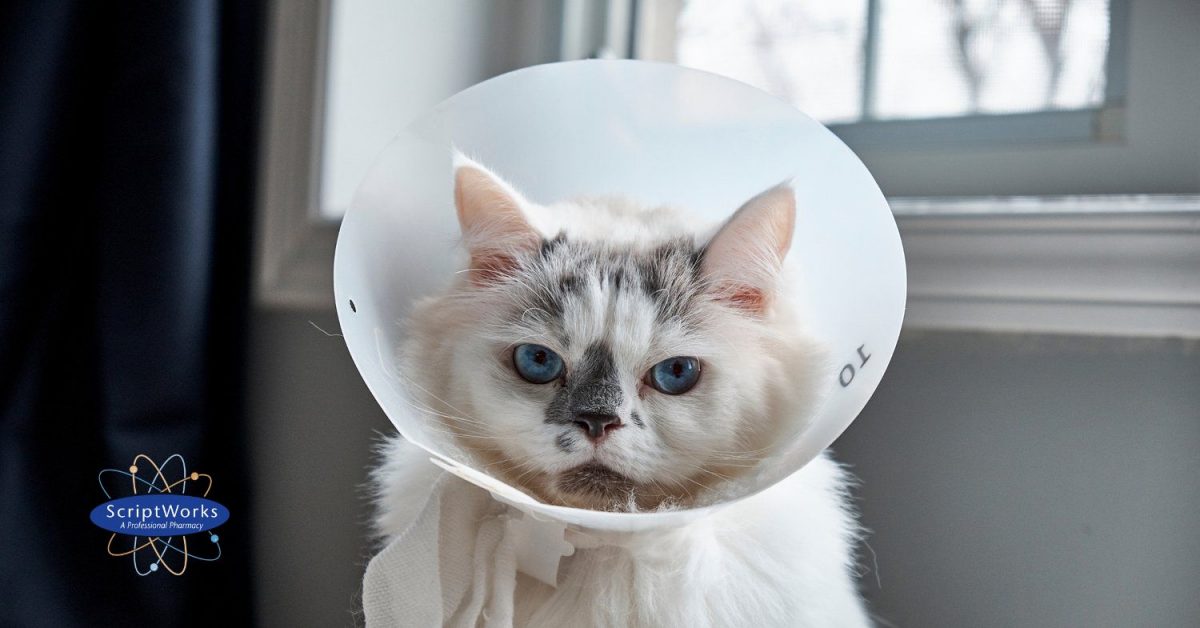
Author: Bob Brensel | President, Pharmacist | ScriptWorks
Bob Brensel, RPh, earned his Pharmacy Degree at University of the Pacific in Stockton, California in 1980. Former California Pharmacists Association’s Award Winner for Recognition of Outstanding Achievement in Compounding Pharmacy. Read More →
The most common prescriptions we compound for veterinary use at ScriptWorks are for Inflammatory Bowel Disease (IBD). IBD is a chronic condition that affects many cats. It is a disorder that causes inflammation in the gastrointestinal tract, leading to a range of symptoms including vomiting, diarrhea, weight loss, and poor appetite.
In this blog, we will explore what IBD in cats is, its causes, symptoms, diagnosis, and treatment.
What is IBD in Cats?
Inflammatory Bowel Disease in cats is a condition where the immune system of the cat mistakenly attacks the lining of the gastrointestinal tract. This causes inflammation in the gut, which can lead to a range of symptoms. Inflammation can occur in any part of the digestive tract, from the mouth to the anus.
Dr. Ayeley Okine, DVM, veterinary specialist in internal medicine of East Bay Sonovet, has shown us an ultrasound of a thickened lining of the small intestine, a common place for IBD (see pictures below). This is very common in cats with inflammatory bowel disease or small cell lymphoma. She noted that the lymph nodes are typically slightly enlarged as well.

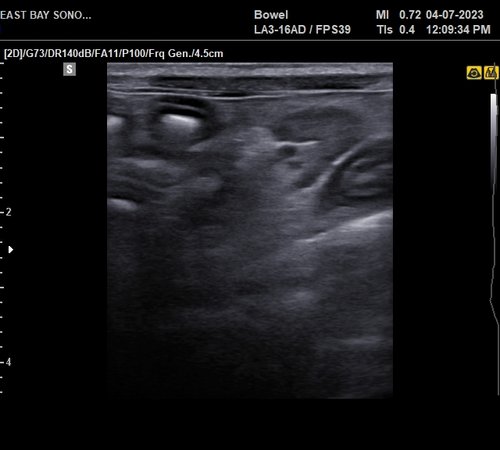

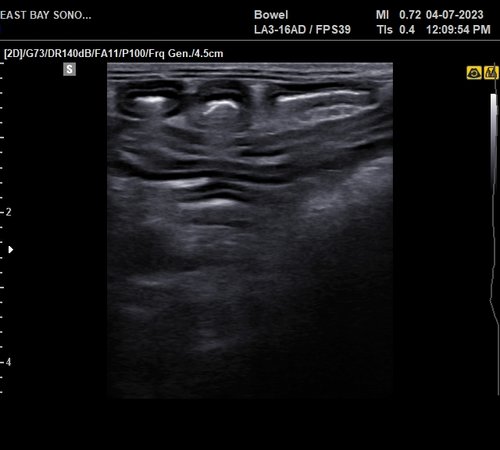
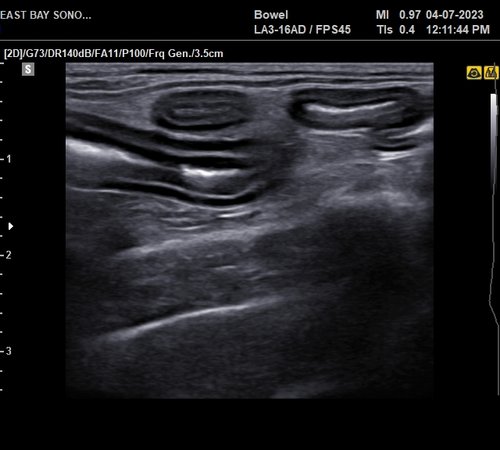
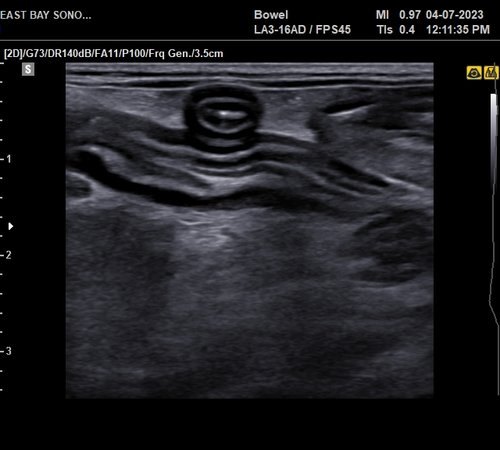

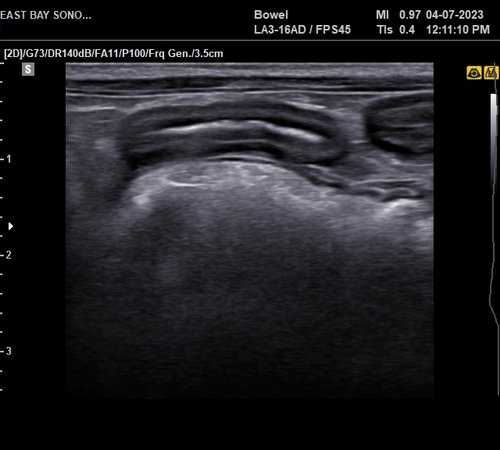

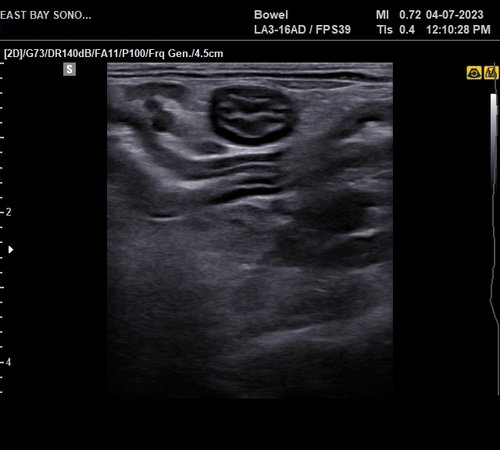
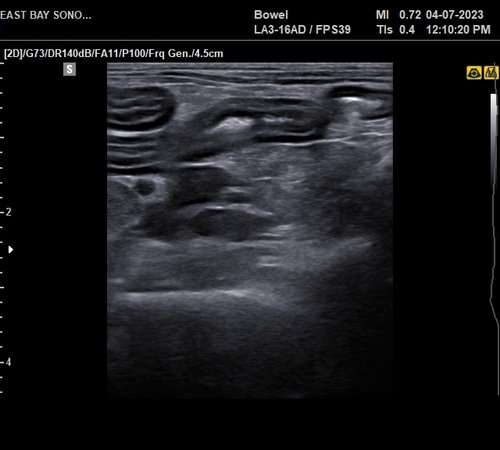
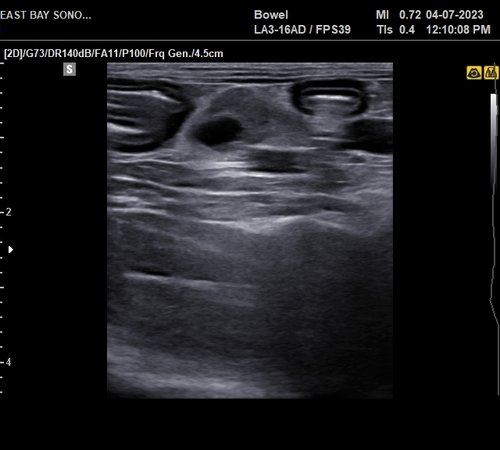
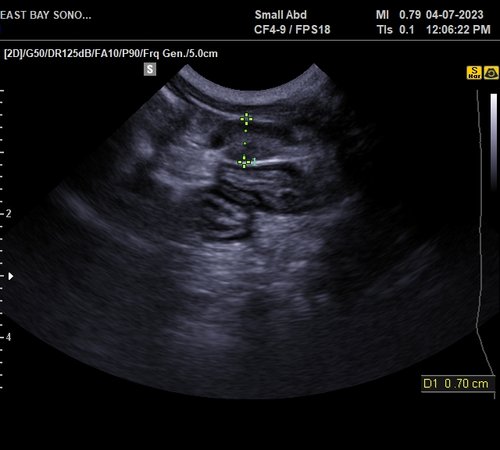
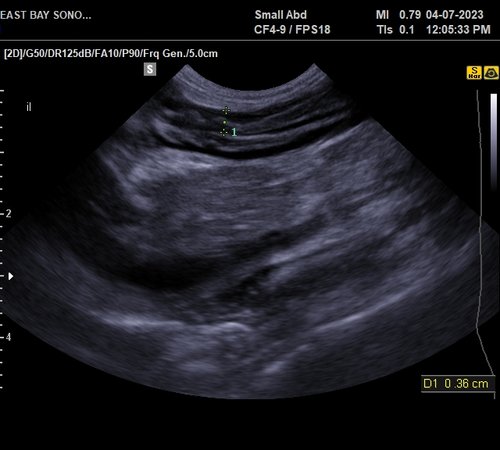
Causes of IBD in Cats
The exact cause of IBD in cats is unknown. However, it is thought to be a combination of genetic and environmental factors. Some cats may have a genetic predisposition to IBD, while others may develop it due to environmental factors such as diet, stress, or exposure to toxins.
Symptoms of IBD in Cats
The symptoms of IBD in cats can vary depending on the severity and location of the inflammation. Some common symptoms include:
- Vomiting
- Diarrhea
- Weight loss
- Loss of appetite
- Lethargy
- Abdominal pain
- Blood in the stool
- Excessive gas
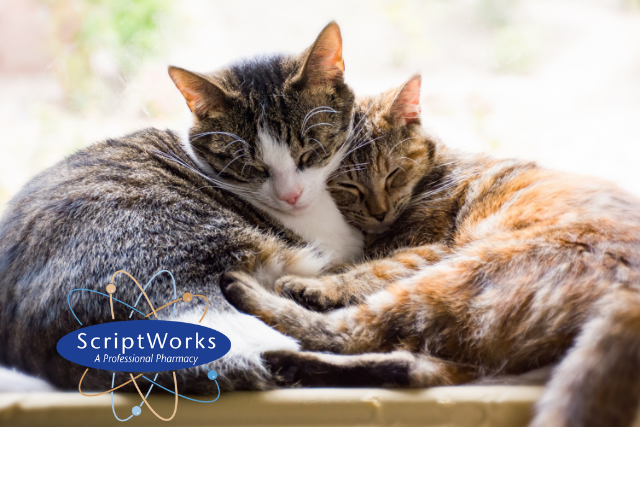
Diagnosis of IBD in Cats
To diagnose IBD in cats, your veterinarian will need to perform a physical examination and run some tests. These tests may include blood tests, fecal tests, and imaging tests such as X-rays or ultrasounds. A biopsy may also be necessary to confirm the diagnosis.
Treatment of IBD in Cats
Treatment for IBD in cats typically involves a combination of dietary changes and medication. Your veterinarian may recommend a special diet that is low in fat and easy to digest. They may also prescribe medication such as Corticosteroids or immunosuppressive drugs to help reduce inflammation in the gut. Commonly these drugs, which may include Budesonide, Prednisolone, or Corticosteroids are used in compounded formulations such as Script Tabs, Oral Suspensions, Capsules or Treats.
In some cases, surgery may be necessary to remove damaged portions of the digestive tract. This is usually only recommended in severe cases that do not respond to other forms of treatment.
Prevention of IBD in Cats
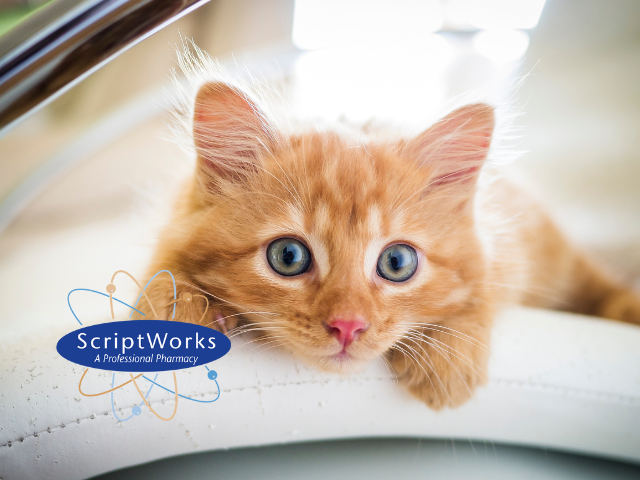
There is no guaranteed way to prevent IBD in cats. However, there are some things you can do to help reduce the risk of your cat developing this condition. These include:
- Feeding your cat a high-quality diet that is low in fat and easy to digest
- Keeping your cat’s stress levels low
- Providing your cat with plenty of fresh water
- Regularly cleaning your cat’s litter box to prevent the buildup of bacteria and other toxins
Conclusion
Inflammatory Bowel Disease (IBD) is a chronic condition that can affect many cats. While the exact cause of IBD is unknown, it is thought to be a combination of genetic and environmental factors. The symptoms of IBD in cats can vary depending on the severity and location of the inflammation. Treatment typically involves a combination of dietary changes and medication.
If you suspect that your cat may be suffering from IBD, it is important to seek veterinary care as soon as possible to prevent further complications. It is important to remember that the goal of therapy for IBD is disease management, not necessarily a cure.
ScriptWorks is proud to offer Budesonide, Prednisolone, and Chlorambucil to our animal patients if the veterinarian deems it necessary.

